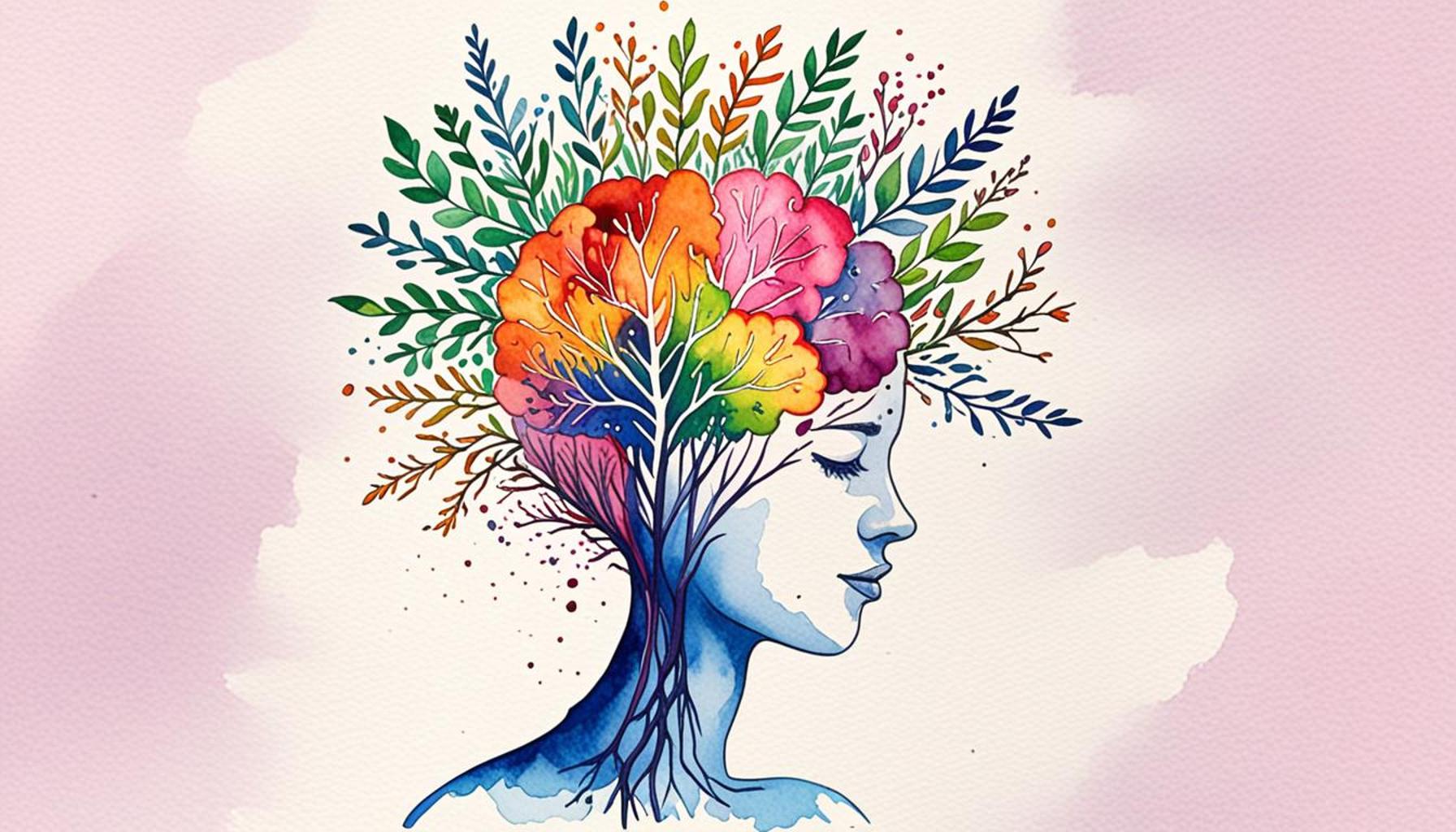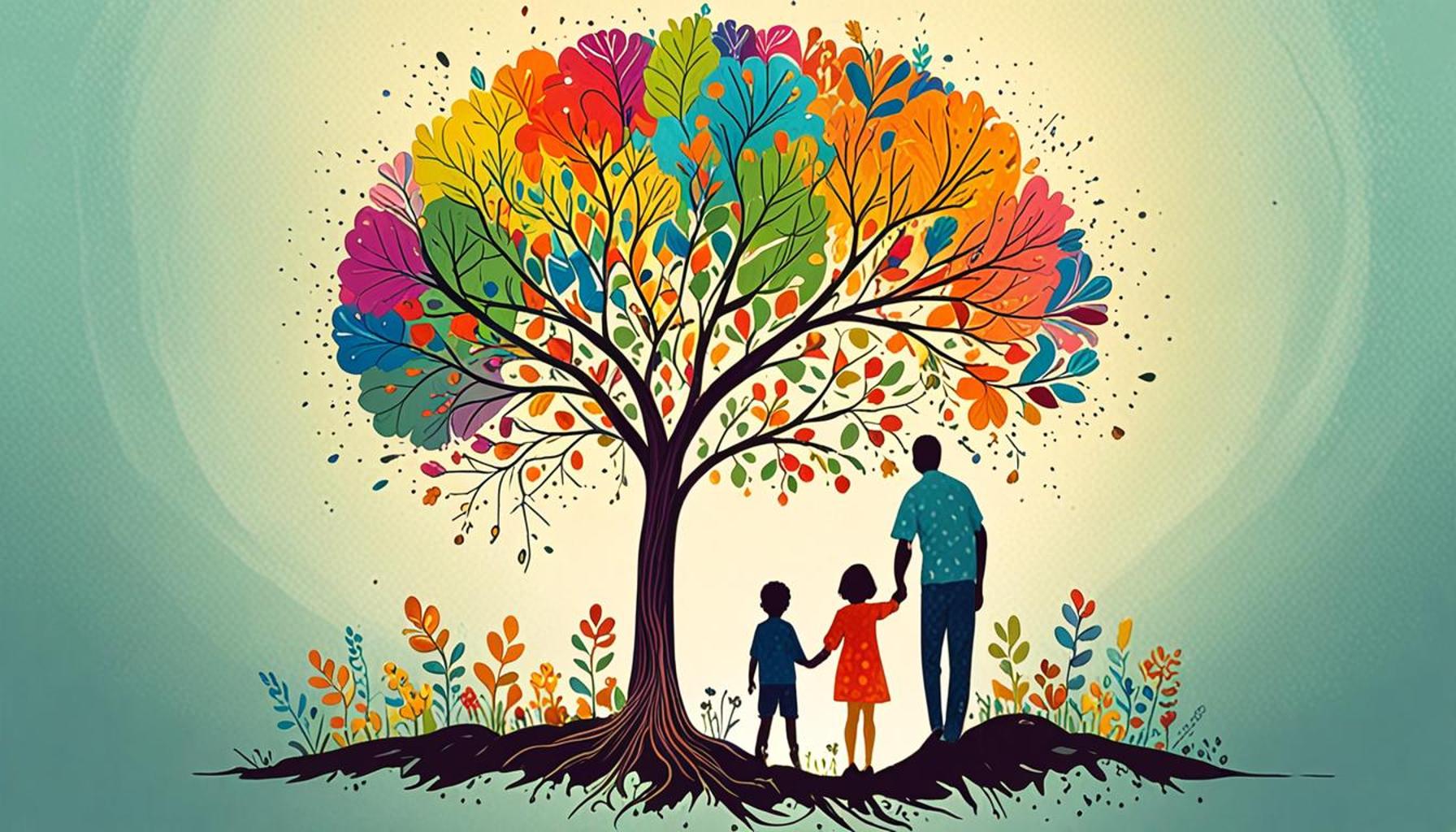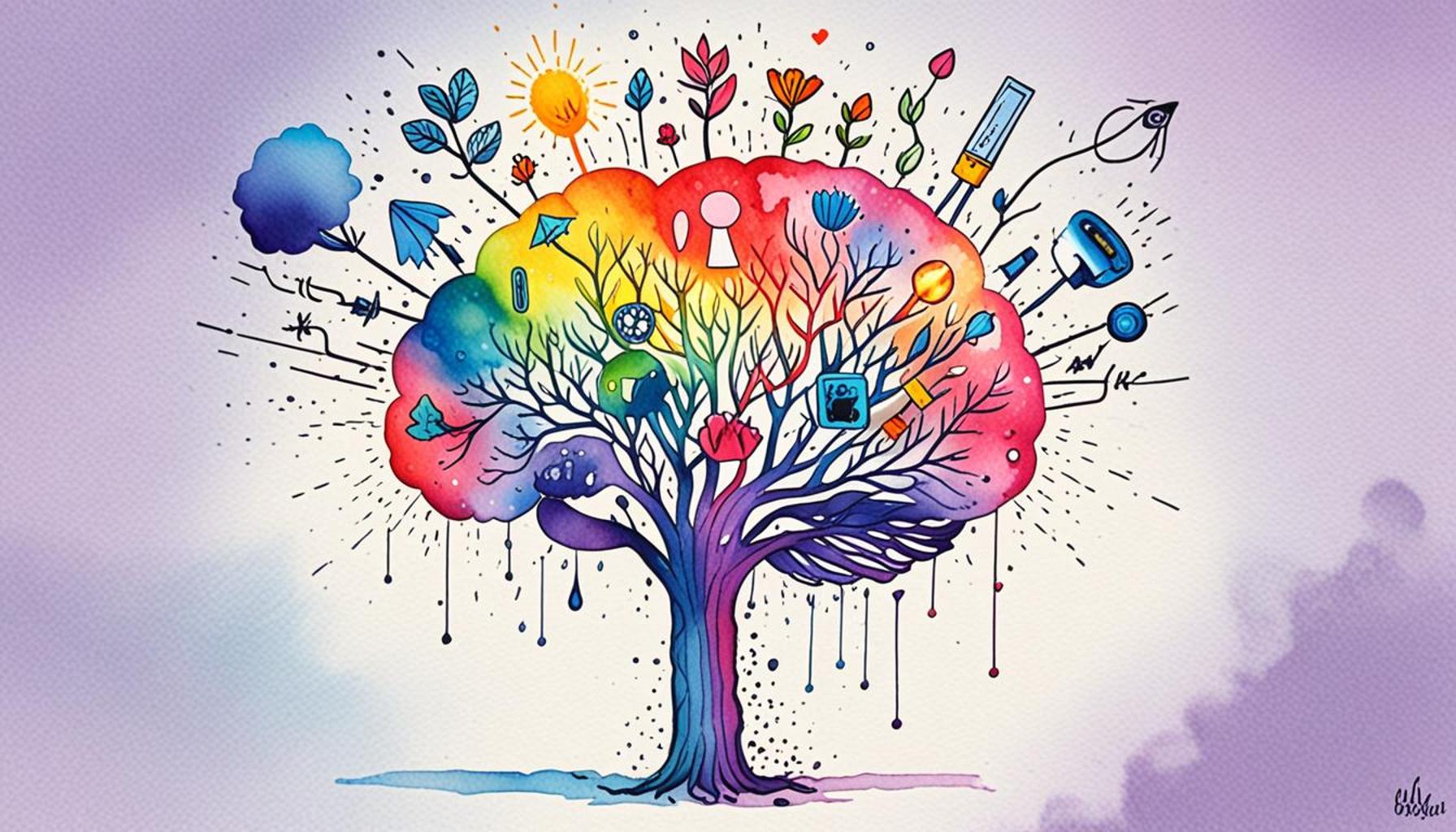The Intersection of Mental Health and Resilience: Growth Mindset Practices for Well-Being

The Importance of Mental Health in Building Resilience
In a world that constantly demands more from us, the importance of mental health becomes glaringly evident. Particularly in Nigeria, where societal pressures, economic hardships, and communal tensions can lead to heightened stress, developing a strong sense of resilience is not just advantageous—it’s essential. Cultivating mental agility and emotional fortitude allows individuals to navigate life’s challenges effectively and maintain their well-being.
The Growth Mindset: A Game-Changer for Resilience
At the heart of resilience lies the concept of a growth mindset, a term popularized by psychologist Carol Dweck. This mindset embodies the belief that intelligence and abilities can be enhanced through persistent effort and learning. For instance, Nigerian students facing academic challenges often benefit from adopting this mindset; instead of perceiving failure as a final verdict, they learn to view it as a valuable lesson that propels them toward improvement.
- Embracing challenges as opportunities for growth: Individuals who adopt this thinking often take on difficult projects or roles, leading to personal and professional development.
- Persisting in the face of setbacks: Entrepreneurs in Nigeria, for example, may encounter failures in their businesses yet choose to learn from these experiences, striving for success with renewed vigor.
- Seeing effort as a pathway to mastery: Whether it’s mastering a new skill or advancing in a career, the understanding that effort is integral to success can be incredibly motivating.
Strategies for Building Resilience in Everyday Life
For many individuals in Nigeria, the path to resilience involves intentional practices that enhance mental well-being. This journey often encompasses:
- Improving self-awareness and emotional regulation: Initiatives such as community workshops focused on emotional intelligence can help individuals gain insights into their feelings and reactions.
- Developing healthy coping strategies: Activities such as meditation, journaling, and physical exercise serve as effective outlets for stress and anxiety.
- Building strong support networks: Connecting with family, friends, and community members fosters a sense of belonging and provides a safety net during tough times.
The Transformative Power of Resilience
The interplay between resilience and mental health not only fortifies individuals against stress but also leads to a more fulfilling lifestyle. When adults model growth mindset practices—such as constructive feedback loops for children or mentoring young people—this cultural shift can lead to collective progress. As Nigerians embrace these practices, they empower themselves to transform what may initially seem like insurmountable challenges into stepping stones towards success.
Exploring the nuances of mental health and resilience is vital, and as more people engage in these conversations, a stronger, more supportive community can flourish. It invites readers and practitioners alike to delve deeper into this critical intersection, inspiring a movement towards healthier minds and resilient spirits. In a rapidly changing world, the strength derived from these practices can indeed illuminate the path forward.
YOU MAY ALSO LIKE: Read read another article
Understanding Resilience Through a Mental Health Lens
Resilience is not merely about overcoming adversity; it also involves understanding and nurturing our mental health. In Nigeria, where daily life presents unique challenges—from economic fluctuations to social unrest—the ability to bounce back is crucial. Mental health, often stigmatized, plays a pivotal role in how we handle stress and adversity. Promoting mental well-being is thus not only beneficial for individuals but is essential for fostering a more resilient society.
The Link Between Mental Health and Well-Being
The relationship between mental health and well-being is profound. A healthy mind empowers individuals to face challenges with optimism and confidence, while poor mental health can lead to a downward spiral of stress, anxiety, and despair. Mental health issues, if left unaddressed, can manifest in various ways, affecting physical health, interpersonal relationships, and even productivity at work or school.
Research indicates that mental disorders can significantly increase the risk of experiencing adverse stressors, ultimately undermining resilience. For example, studies show that individuals with anxiety disorders may struggle more with coping mechanisms compared to those with stable mental health. Thus, it is crucial to create awareness and provide resources for mental health care in Nigeria, so that individuals can better manage their emotional well-being.
Practical Growth Mindset Techniques for Enhancing Resilience
To foster both mental health and resilience, individuals can implement a variety of growth mindset techniques into their daily routines. These practices are designed to encourage a shift in perspective, allowing for better coping with the inevitable challenges of life.
- Practice self-compassion: Rather than criticizing oneself for perceived failures, learning to treat oneself with kindness can significantly increase resilience. This involves acknowledging that everyone makes mistakes and that failure is an integral part of the growth process.
- Set realistic goals: Setting achievable goals fosters a sense of accomplishment. In Nigeria, where the economic landscape can be uncertain, breaking down larger aspirations into smaller, manageable tasks can help individuals stay motivated and focused.
- Reflect and reframe situations: Use journaling as a tool to reflect on daily experiences and to recognize patterns of negative thinking. By consciously reframing situations, individuals can develop a positive outlook toward challenges.
These practices are not only vital for personal growth but also form the foundation for a community that values resilience. When individuals commit to enhancing both their mental health and resilience, they contribute to a collective cultural shift. This shift fosters a supportive environment, encouraging others to adopt similar practices, and ultimately leading to a more resilient society.
As more Nigerians engage in discussions around mental health and resilience, the pathway towards comprehensive well-being becomes clearer. It is essential that individuals recognize the intersection of these concepts to foster both personal and communal growth, opening the door to a better quality of life.
The Intersection of Mental Health and Resilience: Growth Mindset Practices for Well-Being
As we delve deeper into the connection between mental health and resilience, it’s essential to recognize that adopting a growth mindset can significantly enhance our ability to cope with challenges. A growth mindset, coined by psychologist Carol Dweck, is the belief that our abilities and intelligence can be developed through dedication and hard work. This principle not only fosters resilience but also directly impacts our well-being.
| Category | Advantages of Growth Mindset |
|---|---|
| Enhanced Self-Efficacy | Individuals believe in their ability to improve, leading to greater personal achievements. |
| Increased Emotional Regulation | Promotes coping strategies that enhance psychological resilience during setbacks. |
| Fostering Positive Relationships | Encourages supportive social networks that reinforce mental health resilience. |
By continually embracing and cultivating a growth mindset, individuals can strengthen their mental fortitude, ultimately leading to improved emotional health. Research has shown that those who actively practice growth mindset principles are better equipped to handle stress, adapt to change, and maintain a sense of personal effectiveness. Alongside this, resilience can be seen as a valuable skill set that is not only innate but can be cultivated through intentional practice and awareness.
To truly harness the power of a growth mindset, individuals should focus on setting achievable goals, embracing challenges, and seeking feedback. These practices not only enhance our capacity for resilience but also create a supportive framework for mental health, improving overall well-being. Ultimately, the intersection of mental health and resilience enables individuals to thrive, even in the face of adversity. It’s a journey worth undertaking for anyone looking to bolster their emotional and psychological health.
LEARN MORE: This related article may interest you
Building Community Resilience Through Collective Growth Mindset Practices
While individual practices are instrumental in enhancing mental health and resilience, fostering community resilience can amplify these effects. In Nigeria, where communities often face socio-economic and political challenges, establishing supportive networks can create a culture of mental well-being. Engaging in collective growth mindset practices not only benefits individuals but strengthens the community fabric.
The Role of Support Networks
Support networks play a critical role in promoting mental health and resilience. Families, friends, and local organizations can provide essential emotional and practical support to individuals grappling with life’s challenges. According to research, individuals who engage with supportive networks report higher levels of resilience and lower levels of mental distress. In Nigerian communities, traditional structures such as extended families and communal living offer natural avenues for bolstering support.
- Organize group workshops: Facilitate interactive workshops that focus on building resilience through growth mindset principles. Topics could range from stress management techniques to enhancing emotional intelligence. Such workshops help create dialogue around mental health, reducing stigma and encouraging collective learning.
- Encourage peer support groups: Establish peer-led support groups that allow individuals to share their experiences and coping strategies. In these groups, members can establish trust, validate each other’s feelings, and foster a deeper understanding of mental health.
- Engage in community service: Volunteering in local initiatives not only bolsters community ties but also enhances individual well-being. Helping others cultivates a sense of purpose and belonging, crucial ingredients for resilience.
Integrating Cultural Values with Resilience Practices
Incorporating cultural values into resilience practices can yield remarkable results. The Nigerian culture is rich with traditions that promote communal support and togetherness. By integrating these cultural insights into modern resilience strategies, individuals can find greater relevance and connection.
For example, in many Nigerian cultures, storytelling is a vital way to share experiences and lessons learned. Leveraging storytelling sessions within communities can serve as a powerful method to share resilience strategies and success stories, providing inspiration both for the teller and the listeners. Furthermore, highlighting local heroes who have triumphed over adversity can instill hope and the belief that resilience is achievable.
Additionally, considering spiritual practices prevalent in Nigeria can also play a role in enhancing mental health and resilience. Engaging in communal prayers, meditation, or traditional rituals fosters a sense of belonging and connection to a larger purpose, both of which are essential for strengthening resilient behaviors.
Utilizing Technology for Mental Health Awareness
With Nigeria’s growing access to technology, digital platforms can serve as important tools for raising awareness and education on mental health and resilience. Social media channels, mobile apps, and online communities can bridge the gap between individuals and mental health resources. They can be instruments for sharing informative content, facilitating discussions, and connecting people to mental health professionals—even in remote areas.
As the need for mental health services become more evident, digital campaigns can encourage individuals to engage in growth mindset practices, breaking the stigma associated with seeking help. This is particularly essential in a country where many still view mental health challenges as taboo, often shrouded in silence.
The intersection of mental health and resilience is indeed a complex domain. By embracing growth mindset practices collectively, Nigerian communities can become fortresses of support and understanding, setting the precedent for a healthier, more resilient society. Understanding and addressing these intersections will empower individuals to rise above challenges, while simultaneously uplifting their communities.
SEE ALSO: Click here to read another article
Conclusion
As we navigate the intricate intersections of mental health and resilience, the importance of embracing a growth mindset emerges as a vital component for fostering personal and communal well-being. In a rapidly evolving society like Nigeria, where socio-economic and cultural complexities abound, harnessing the power of individual growth practices while amplifying community support structures can yield transformative results.
Collectively engaging in practices that promote resilience—be it through support networks, community-driven workshops, or culturally resonant storytelling—can empower individuals to overcome adversities while instilling confidence in their ability to effect change. Moreover, as digital platforms continue to reshape the landscape of mental health awareness, they offer unprecedented opportunities for connection, education, and advocacy, breaking the enduring silence surrounding mental health issues.
As we move forward, it is imperative to recognize that strengthening mental health is not merely an individual pursuit; it is a collective responsibility that enriches the community as a whole. By fostering a culture of openness, support, and resilience, Nigerian communities can emerge as exemplars of well-being, resilience, and hope for future generations. In understanding the critical role of a growth mindset in navigating life’s challenges, we create pathways not only for personal recovery but also for societal healing, laying the foundation for a more resilient future.



